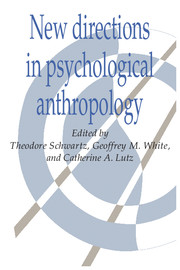Book contents
- Frontmatter
- Contents
- List of contributors
- Introduction
- I Cognition and social selves
- II Learning to be human
- III The body's person
- IV Psychiatry and its contexts
- 9 Culture and psychopathology: directions for psychiatric anthropology
- 10 A prologue to a psychiatric anthropology
- 11 Hungry bodies, medicine, and the state: toward a critical psychological anthropology
- V Psychoanalytic approaches
- VI Disciplinary perspectives
- Index
10 - A prologue to a psychiatric anthropology
Published online by Cambridge University Press: 05 June 2012
- Frontmatter
- Contents
- List of contributors
- Introduction
- I Cognition and social selves
- II Learning to be human
- III The body's person
- IV Psychiatry and its contexts
- 9 Culture and psychopathology: directions for psychiatric anthropology
- 10 A prologue to a psychiatric anthropology
- 11 Hungry bodies, medicine, and the state: toward a critical psychological anthropology
- V Psychoanalytic approaches
- VI Disciplinary perspectives
- Index
Summary
This chapter was stimulated by an invitation to comment on a paper of Byron Good's delivered at the 1987 meeting of the American Anthropological Association. I came to anthropology from a first career in psychiatry via an interest in the “social” and “transcultural” psychiatry of the 1950s and 1960s. What follows is a reflection of my experience of mid-century American psychiatry, my response to some of the pioneering literature on comparative psychiatry, and my studies of some people and their problems in exotic places.
Contemporary anthropology has peculiar problems. It has an unsure sense of its identity, a lack of agreement on its central problems, on its relevant methods, and on the location of its boundaries. This is at best a stimulus to creativity but entails various heavy costs, particularly for cumulating understandings among us. One of the several symptoms of what psychiatrists might call our “borderline disciplinary personality” is an awed inability to deal in a mature fashion with our neighboring disciplines – for psychological anthropology in its classical form such seemingly self-assured neighbors as cognitive and general psychology, psychiatry, and psychoanalysis, and, to a much lesser degree, ethology, biology, and evolutionary theory. We tend to be naive about the contemporary certainties proffered by those neighbors and unable to deal with their tropes, metaphors, and shifting truths with the kind of sophistication that would make them useful for our own purposes – assuming of course that we knew what our own purposes might be.
- Type
- Chapter
- Information
- New Directions in Psychological Anthropology , pp. 206 - 220Publisher: Cambridge University PressPrint publication year: 1993
- 1
- Cited by



